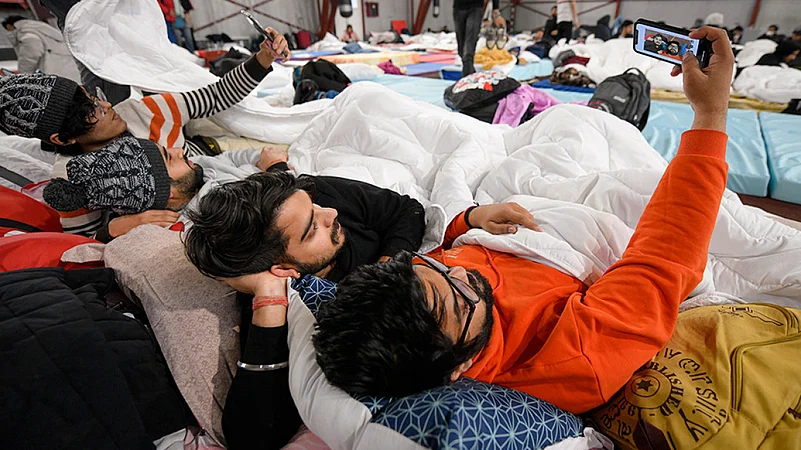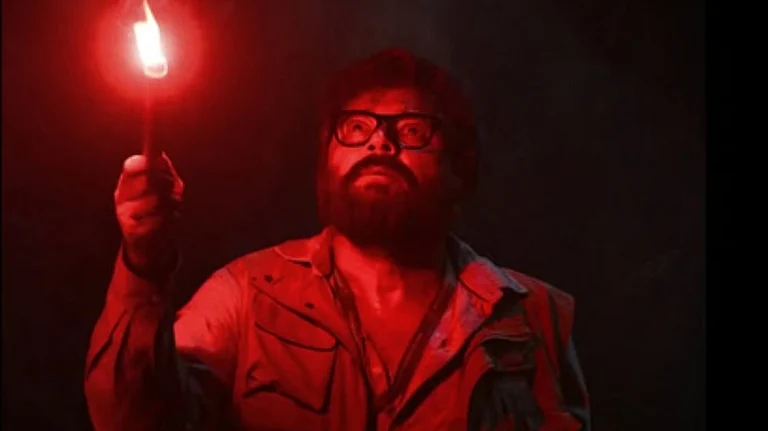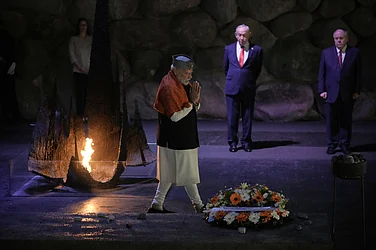“My brother started from Ukraine on February 27 for the Romania border. He along with 10-12 other students arranged a bus to somehow get out of Vinnytsia and reach the Romania border,” said a worried Mithilesh, brother of Dipanshu Vishwakarma, one of the many Indian students are stuck at the Romania border amid Russia’s invasion of Ukraine.
The fourth-year medical student at the National Pirogov Memorial Medical University was earlier stuck in Vinnytsia city in West-Central Ukraine. Youngest of three brothers, Dipanshu is among the thousands of students who choose to pursue their medical dream in smaller nations – most being those who don’t get a government college back home or get a low rank in the NEET (National Eligibility cum Entrance Test).
On Saturday, Prime Minister Narendra Modi had urged Indian students to not go to small foreign nations (mostly conflict zones) for medical education and study in India, while appealing to the private sector to contribute in a bigger way. His statement came at the backdrop of the Russia-Ukraine crisis, which has left thousands of students -- especially those studying medicine -- stranded in either Ukraine or Poland and Romania borders.
“Our children today are going to small countries for study, especially in medical education. Language is a problem there. They are still going...Can our private sector not enter this field in a big way? Can our state governments not frame good policies for land allotment regarding this," Modi had said.
According to the National Medical Council, there are 605 MBBS colleges in India (both government and private), which offer 90,825 seats for students. In 2021, over 15.44 lakh candidates had appeared for the NEET exam, conducted at 3,858 centers in 13 languages. Over 8.70 lakh candidates have qualified for the exam. A record 16.14 lakh candidates had registered for the NEET last year.
The NEET, conducted by the National Talent Agency (NTA), is a qualifying medical entrance exam for admission to bachelor courses in medicine and surgery (MBBS), dental surgery (BDS), Ayurveda, Unani, and homeopathic among others in premier medical colleges such as the AIIMS and Jawaharlal Institute of Postgraduate Medical Education and Research (JIPMER), Puducherry.
A limited number of seats in government colleges and a low number of overall seats available for admission in general combined with an outrageous fee structure are the key reasons for students choosing to study in smaller foreign nations.
“Dipanshu had taken the NEET exam and cracked it as well. But he couldn’t secure a seat in any of the government colleges. Private colleges asked for a donation of Rs 10-15 lakh apart from a yearly fee of Rs 10-15 lakh. It’s unaffordable for a middle-class family. So, we decided to explore options overseas and came across Ukraine as one of the destinations to study,” said Mithilesh"
The university where Dipanshu studies is ranked among the top 400 universities in the world and is recognized by the Medical Council of India and the World Health Organisation. The fee structure -- Rs 3.5 lakh per annum (excluding the stay which costs Rs 25,000 per month) – is also affordable, according to Mithilesh.
“Dipanshu got admission into the university through his NEET score. He had got a decent score but not enough to qualify into any of the government colleges in India. The problem of reservation in colleges also pushes students to take admission in other countries,” Mithilesh said. Being MCI-affiliated, the university degree would allow Dipanshu, who hails from the Betul district of Madhya Pradesh, to also practice in India.
For any medical professional, who has studied at a foreign university, National Exit Test (NExT) is an eligibility exam to get a medical license for practicing in India or for post-graduation in any Indian medical college.
Utkarsh Singh, a fourth-year student from Ternopil Medical University in Ukraine expressed similar views. “The ratio of seats available in comparison to students taking the NEET exam is highly skewed. Plus, the fee structure is mostly unaffordable for many. Studying in countries such as Ukraine, thus is a viable option as here the entire medical education cost including the stay costs about Rs 30 lakh.”
Like Dipanshu, Utkarsh also got admission through his NEET score and opted for Ukraine after receiving unsatisfactory reviews about countries such as Georgia and Kazakhstan. “I spoke to a couple of my seniors who studied in Ukraine and are currently pursuing their post-graduation from AIIMS. They recommended this university,” Utkarsh told Outlook.
A senior doctor practicing in a government medical hospital in Delhi (on condition of anonymity) agreed that reservation and expensive medical education are creating barriers for medical aspirants to study in India. “Firstly, many deserving candidates are unable to get admission in government colleges because of reservation. Also, the cost of medical education, especially in private colleges, is really high here forcing many students to study in countries such as Ukraine.”
When Outlook spoke to Dipanshu and Utkarsh, they had both safely taken shelter in a Romanian bunker, and were awaiting further instructions from the Indian embassy.





















